My effort to write about George Winston has been interrupted by a natural disaster. I will resume that series of posts after a few notes from downtown Montpelier, Vermont, now a federal disaster area. Our beautiful capital city has been ruined, gutted, by the flooding of July 9 and 10.
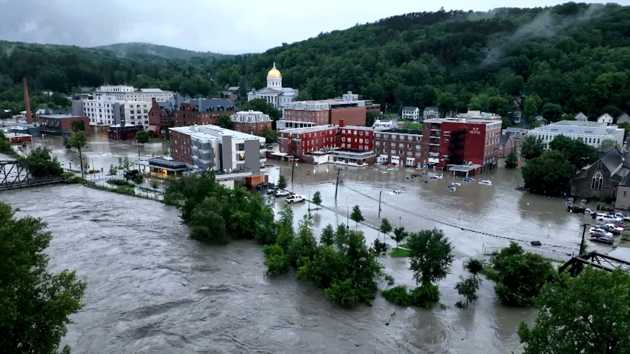
From the air – from a distance – the flooded streets appear rather tidy, flat and neat. Montpelier: a little Venice in the hills! But they don’t show the stink that the floodwaters brought, heating oil from overturned basement tanks, sewage from washed out septic systems. They don’t show the breakage and loss and pollution. And nothing can convey the mess that remains when the water subsides and the cleanup effort begins.
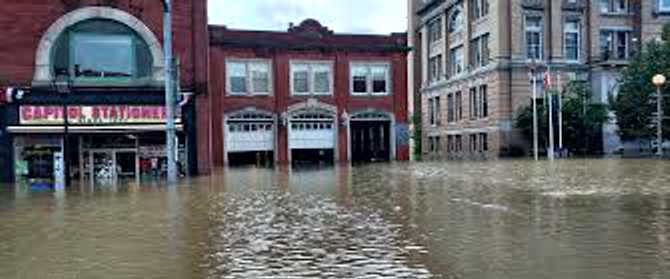
If you haven’t lived through it, it’s hard to “get” the scope of the fear and mess and drudgery and sorrow. There’s an almost incomprehensible complexity to the many dimensions of misfortune. And when municipal services go down — those lovely things we take so for granted, like the fire department, the police, the street crews — and when all the roads and bridges coming into town are under water or washed out, you feel very vulnerable.
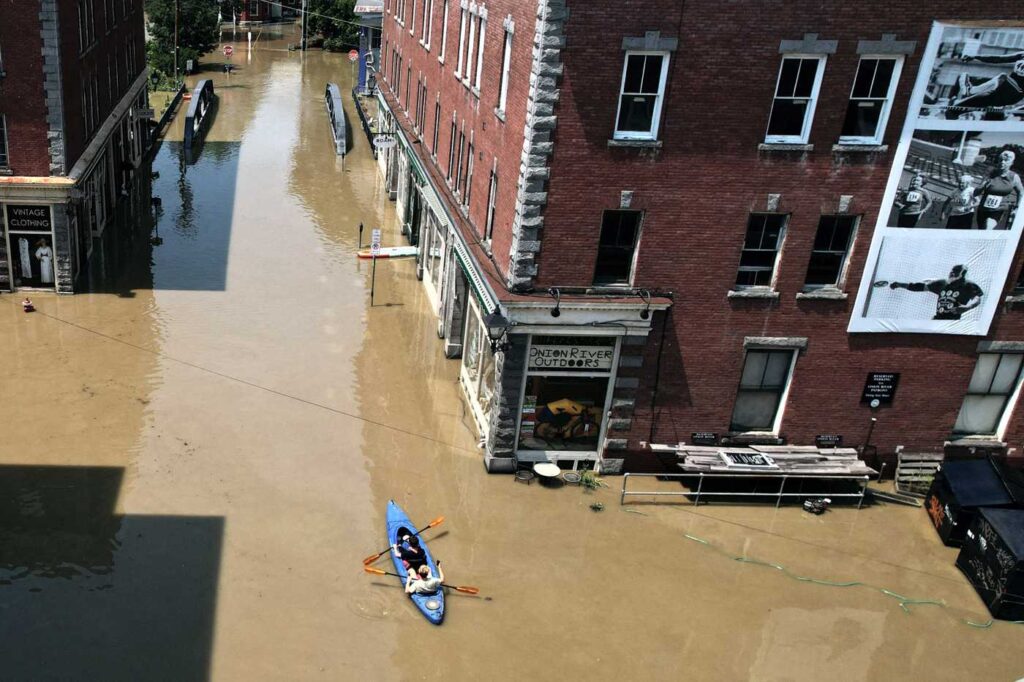
Three rivers converge here, and the upriver rainfall broke all records. The soil was already saturated from weeks of rain, so there was nowhere for it to go but downhill. At first it was exciting, fascinating: watching the swollen rivers rise, with tree trunks and random items borne by the swirling water. Remarking on the relentless pounding of the rain.
But soon the water reached the bottoms of the bridges. Then it was in the streets. Soon it appeared at the downhill end of our backyard, and we watched for an hour as it crept toward the house. It rose too fast. It had a powerful current, carrying debris: dumpsters, bags of trash, diapers, buckets, traffic cones, tires, tree branches. No longer exciting — just scary and horrible.
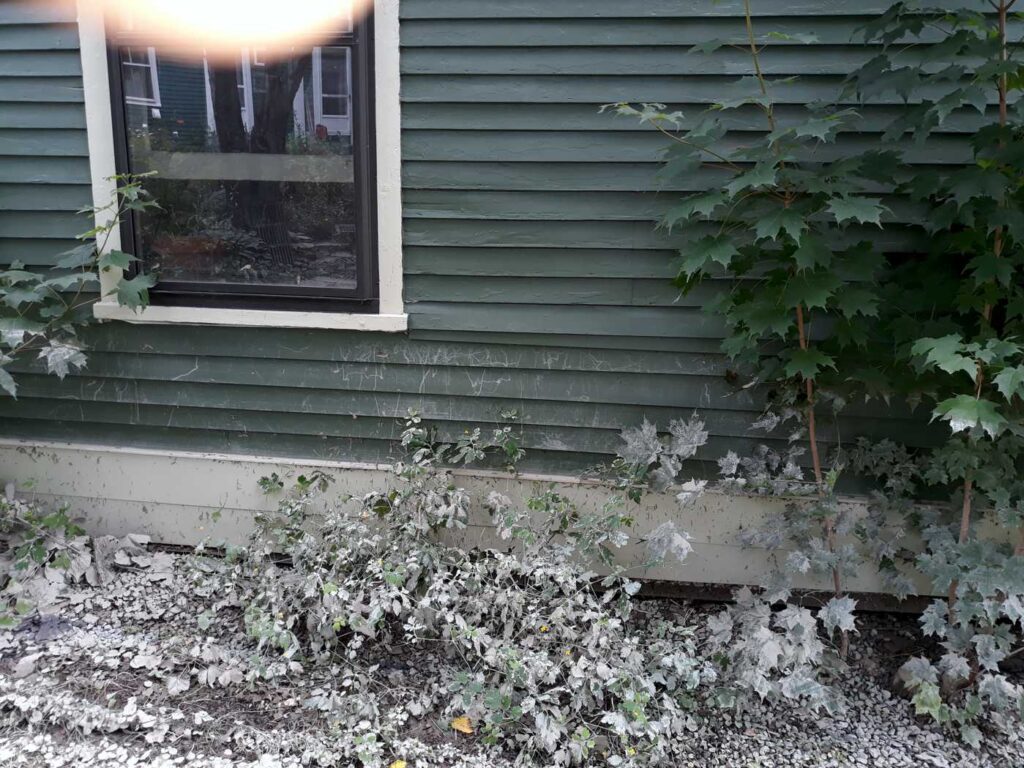
Then it was at the house. The basement filled to the ceiling, drowning the furnace, water heater, electrical breaker box. The sump pump ruptured its connections and was furiously pumping a fountain back into the basement. When the water heater floated up, it broke the water line, which shot out even more water for some hours until we noticed it.
We marked the water’s rise by watching things go under, one by one. Parking meters, the BBQ grill, the tallest flowers in the garden. There was nothing to be done — you can only watch, helpless. Early on, my son and I waded in waist-deep water to rescue people stuck in cars nearby. Later, it was too deep and moving too fast to risk stepping in. A horrid fetid snake winding through the streets, wrapping our town, throttling it.
When the water went down, after many hours — that’s when the hard stuff began. When the heartbreak was revealed in its fullness.
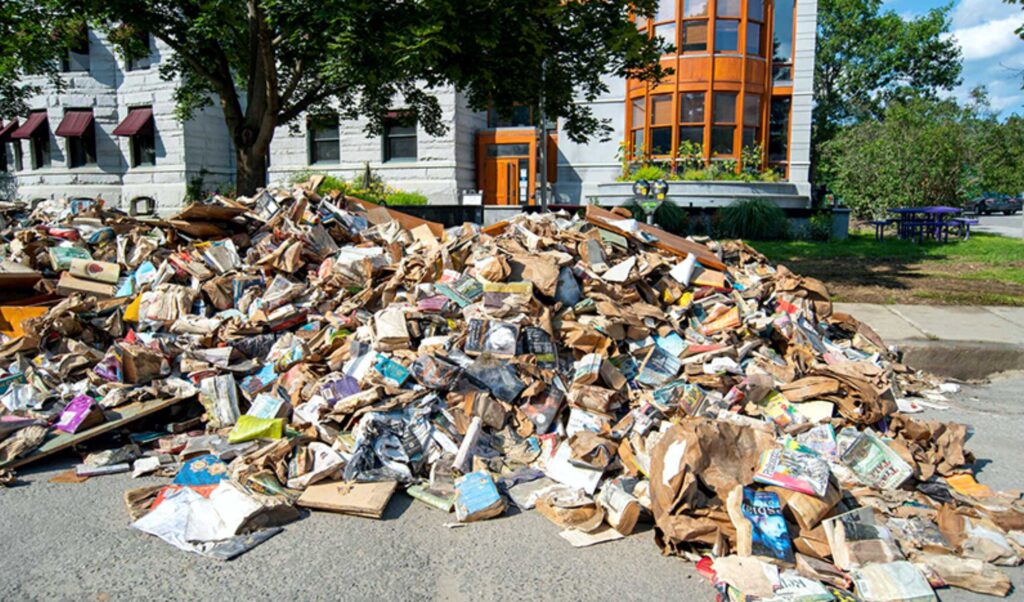
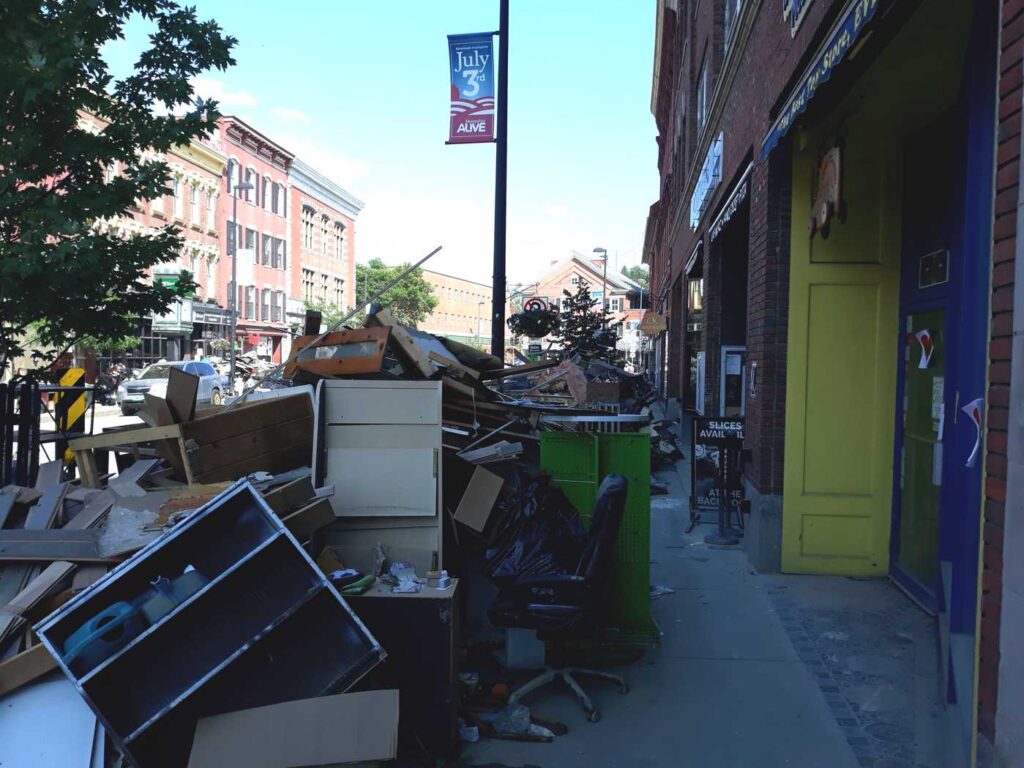
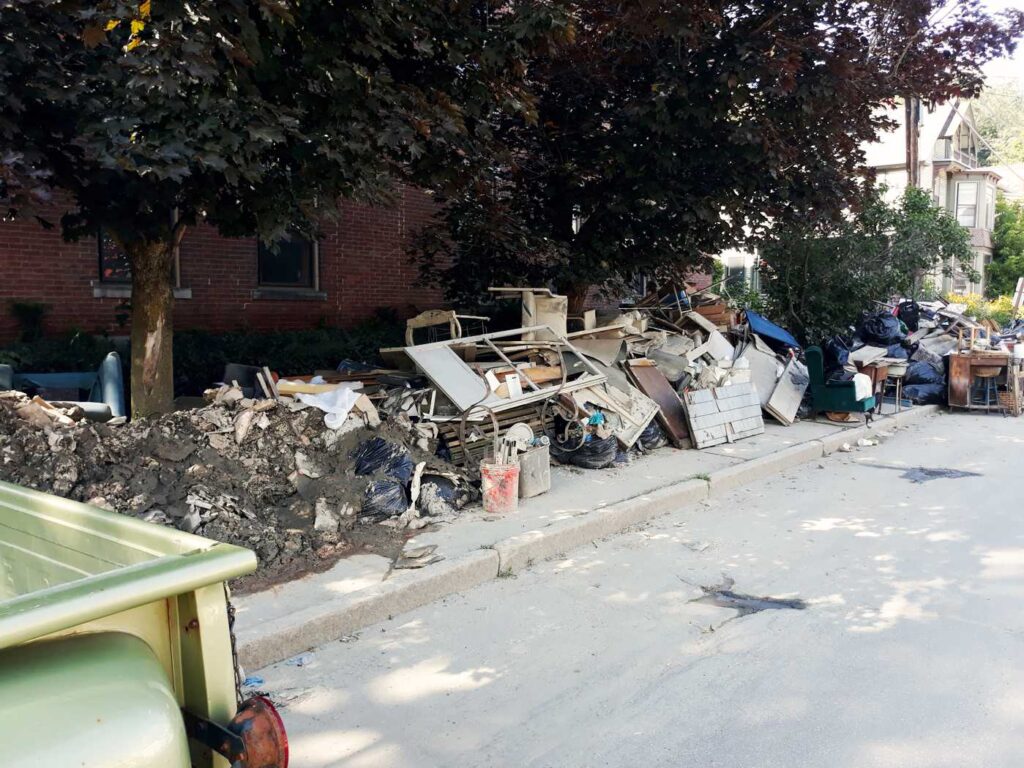
“Don’t it always seem to go that you don’t know what you’ve got ’til it’s gone?” Joni Mitchell sings. Only sorta true, Joni. We kinda knew we had a good thing.
Next: More bulletins from the flood.

